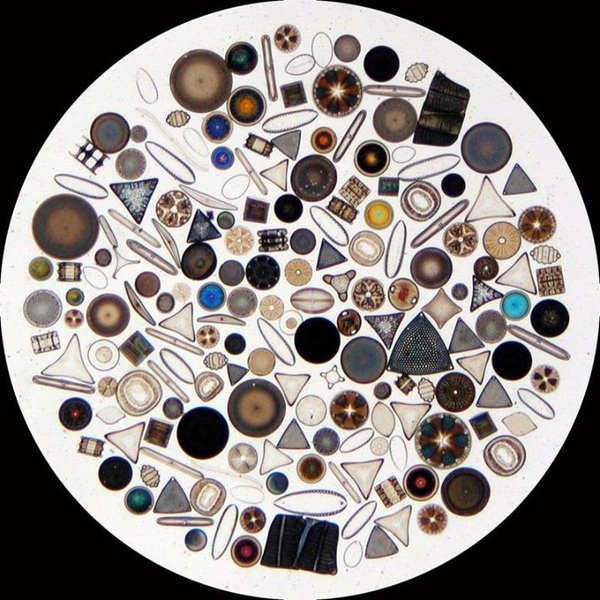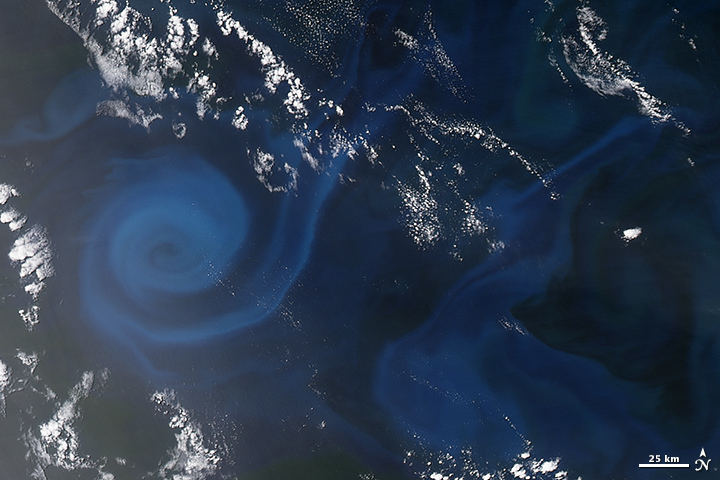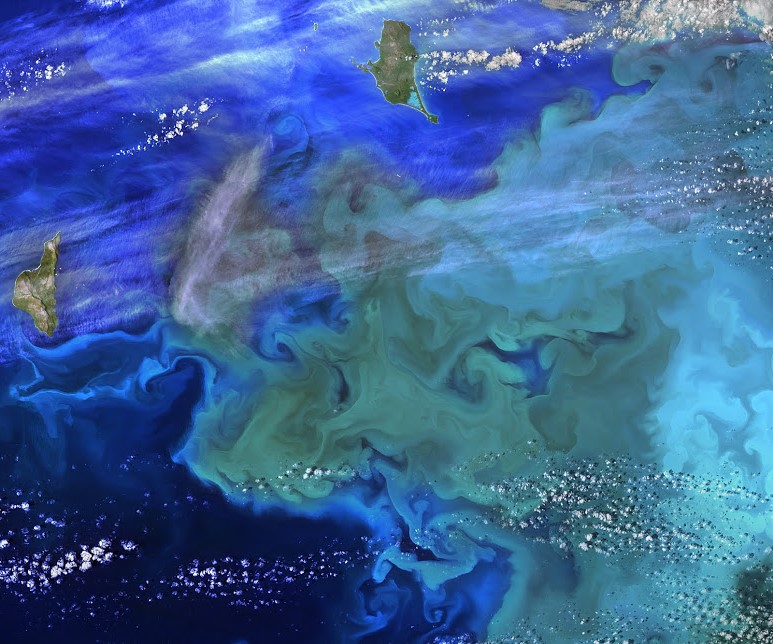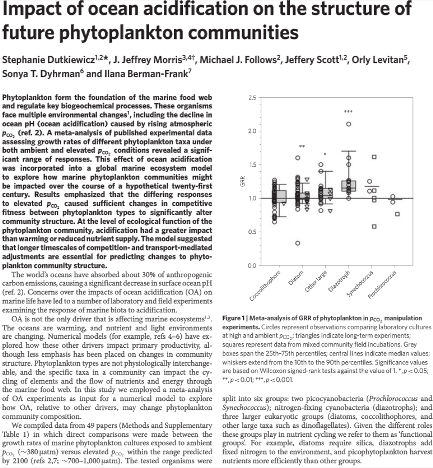File:Phytoplankton.jpg
Phytoplankton.jpg (600 × 600 pixels, file size: 97 KB, MIME type: image/jpeg)
https://en.wikipedia.org/wiki/Diatom
Phytoplankton account for half of all photosynthetic activity on Earth...
Phytoplankton are responsible for much of the oxygen present in the Earth’s atmosphere – half of the total amount produced by all plant life.
http://en.wikipedia.org/wiki/Phytoplankton
○
Marine Biodiversity Strongly Linked to Ocean Temperature
ScienceDaily / 2010 — In an unprecedented effort published online by the international journal Nature, a team of scientists mapped and analyzed global biodiversity patterns for over 11,000 marine species ranging from tiny plankton to sharks and whales.
The researchers found striking similarities among the distribution patterns, with temperature strongly linked to biodiversity for all thirteen groups studied. These results imply that future changes in ocean temperature, such as those due to climate change, may greatly affect the distribution of life in the sea.
http://www.sciencedaily.com/releases/2010/07/100728131707.htm
○
Phytoplankton obtain energy through the process of photosynthesis and must therefore live in the well-lit surface layer (termed the euphotic zone) of an ocean, sea, lake, or other water...
Plankton
2015 - Big Trouble Ahead for Ocean Plankton
Sobering news: Ocean acidification will likely kill off some phytoplankton species and let others thrive, while warming waters will likely cause mass phytoplankton migrations toward the poles. In short: The base of the marine food web could be in for some serious upheaval in the coming decades. Here’s more from MIT News:
“I’ve always been a total believer in climate change, and I try not to be an alarmist, because it’s not good for anyone,” says (Dr. Stephanie) Dutkiewicz, who is the paper’s lead author. “But I was actually quite shocked by the results. The fact that there are so many different possible changes, that different phytoplankton respond differently, means there might be some quite traumatic changes in the communities over the course of the 21st century. A whole rearrangement of the communities means something to both the food web further up, but also for things like cycling of carbon.”
Dutkiewicz and her colleagues studied 154 published experiments...
~ ~ ~ ~
Are our oceans dying?
Phytoplankton has declined 40% in 60 years as figures reveal Earth has been getting hotter since the Eighties
Microscopic marine algae which form the basis of the ocean food chain are dying at a terrifying rate...
Phytoplankton, described as the 'fuel' on which marine ecosystems run, are experiencing declines of about 1 per cent of the average total a year.
According to the researchers from Dalhousie University in Canada, the annual falls translate to a 40 per cent drop in phytoplankton since 1950.
The research into phytoplankton comes as a separate report today offered evidence that the world has been warming for the past 30 years.
Marine diatom cells (Rhizosolenia setigera), which are an important group of phytoplankton in the oceans. Much of life on Earth depends on these tiny creatures which are now in massive decline
The reduction in the amount of algae in the seas could have an impact on a wide range of species, from tiny zooplankton to marine mammals, seabirds, fish and humans.
If confirmed, the decline of the phytoplankton would be a more dramatic change change to nature's delicate balance than the loss of the tropical rainforests, scientist said.
The research, published in the journal Nature, said the declines were linked to rising sea-surface temperatures and changes in the conditions of the ocean, particularly close to the equator.
Most of the declines were seen in polar and tropical regions and in the open ocean, where most phytoplankton are produced.
The scientists suggested that in warmer oceans there was less movement between the layers of the sea, reducing the amount of nutrients delivered from deep water to the surface ocean.
As phytoplankton need both sunlight and nutrients to grow, the limits on the amount of nutrients in the upper layer of the sea affects production of the algae...
File history
Click on a date/time to view the file as it appeared at that time.
| Date/Time | Thumbnail | Dimensions | User | Comment | |
|---|---|---|---|---|---|
| current | 22:51, 30 October 2015 |  | 600 × 600 (97 KB) | Siterunner (talk | contribs) | https://en.wikipedia.org/wiki/Diatom |
You cannot overwrite this file.
File usage
- Green Graphics
- Biodiversity
- Earth360
- Earth Law
- Earth Observations
- Earth Science
- Earth Science from Space
- Ecology Studies
- Environmental Full-cost Accounting
- Environmental Security, National Security
- EOS eco Operating System
- Externalities
- ISS
- Land Ethic
- New Space
- Oceans
- Ocean Ecosystem
- Ocean Science
- Ocean Sustainability
- Planet Citizen
- Planet Scientist
- Planet Citizens, Planet Scientists
- Solar Energy
- Sustainability
- Sustainability Policies
- ThinBlueLayer
- Atmospheric Science
- Biogeosciences
- Climate Change
- Cryosphere
- Geophysics and Geochemistry
- Mineralogy
- Geology
- Geophysics
- Hydrology
- Natural Resources
- Planetary Science
- Space Science and Space Physics



